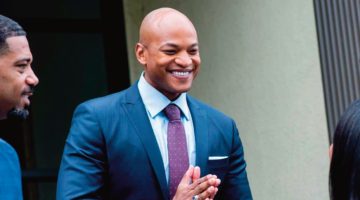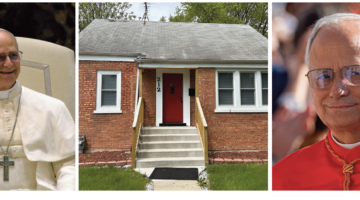Special to South Florida Times
LIBERTY CITY — If it is true that old men dream dreams and young ones see visions, then the Rev. Martin Luther King Jr., was a great conundrum of the 1960s: black, eloquent and evocative in his diction, graceful with a pen and tooled with a penetrating ability at discerning the root causes of America’s political flaws, social faux pas and economic evils
— all evident in his I Have A Dream speech delivered from the steps of the Lincoln Memorial in Washington, D.C., to throngs of supporters of the civil rights movement before his assassination on April 4, 1968.
Close to 50 years since King’s passing, many of the themes found in that speech remain relevant today: inadequate housing and education, economic disparities between minorities and mainstream Americans and sporadic race tensions.
On Monday, communities throughout America turned out to honor the slain civil rights leader whose ostensible life’s mission was to put an end to racial oppression
without violence. And, on the corner of Northwest 54th Street and Northwest 23rd Avenue in Miami’s Liberty City, onlookers stood behind metal barricades as members of the Miami-Dade Police and Fire Rescue departments, elected officials, social service organizations, R.E.A.L. Steppers and high school bands paraded along the avenue in remembrance of King.
Though blacks in America have made monumental accomplishments in its capricious social landscape with the inauguration of the country’s first black president, many South Florida residents are still uncertain about the fruition of King’s dream.
When the Hialeah Police Department’s motorcade coasted up 23rd Avenue, ill sentiments could be heard from one of the women sitting in a child’s pink lawn chair behind the metal partitions.
“[They] know they don’t wanna be out here ridin’ around in no sun on no Martin Luther King Jr. holiday,” said Layla Taylor, 34, of Liberty City.
Such feelings stemming from decades of poor relationships between local law enforcement agencies and black communities in Miami-Dade County date back to riots in Liberty City and Overtown following the acquittal of five white police officers accused of murdering motorcyclist Arthur McDuffie in 1980.
Some believe that King’s dream will always be a dream until black people wake up and allow it to further materialize in their own lives.
“As black people, we have come from a mighty long way,” said C.W. Perkins, 58, of Brownsville, “but we have a long way to go.”
“Take a look around and you can see that black people, especially the youth, need to wake up. The lack of self-respect is depressing. The music is degrading. The way young people speak today is disgusting,” Perkins said.
Perkins believes that, without persistent action, nothing will ever come to a dreamer but a dream. He was fretful for the daydreaming youth. He also wondered what King would think of the plight of black people in 21st century America.












No Comment